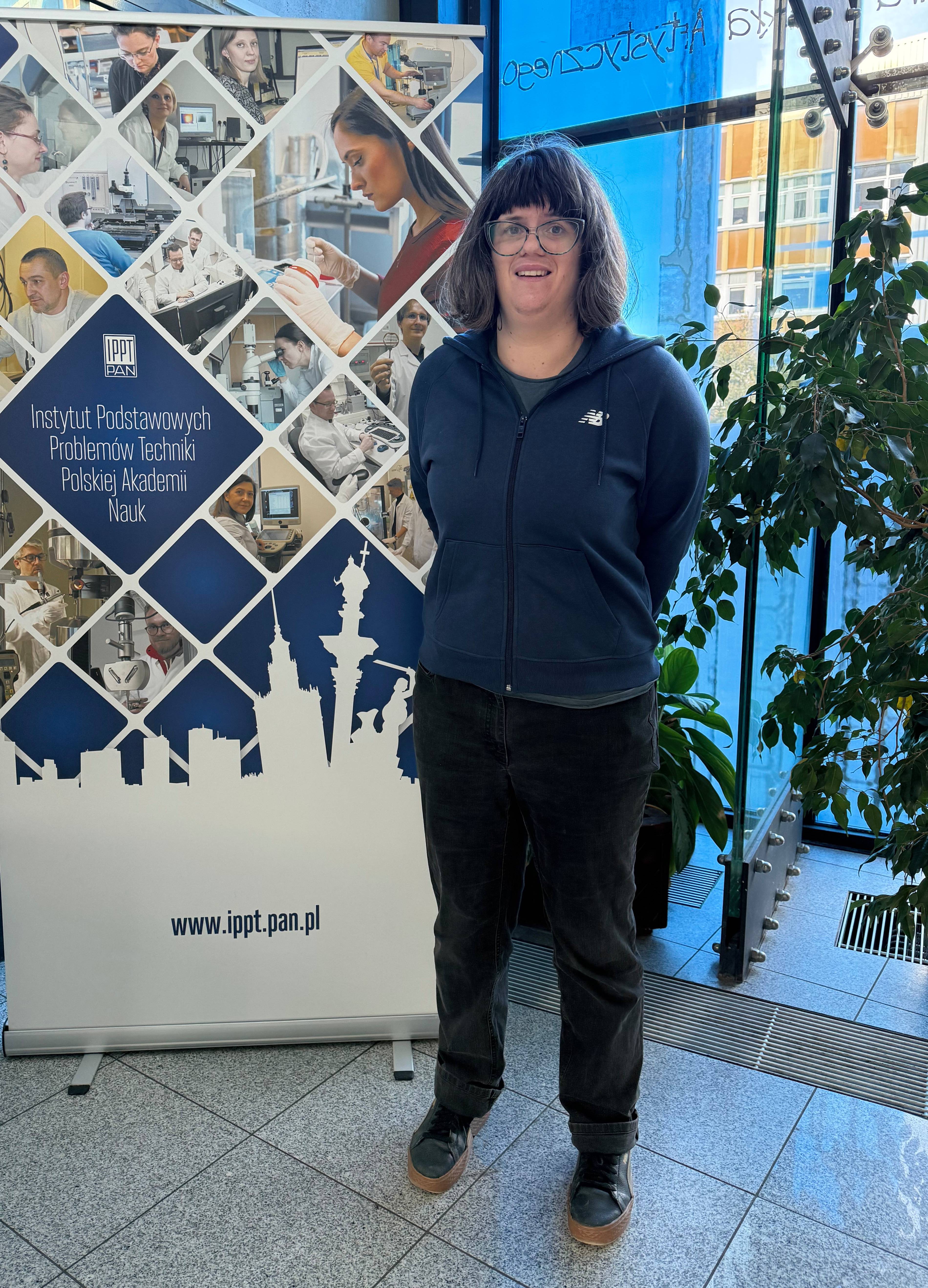
Zofia Rudnicka from the Research Group for Neuroinformatics at the Department of Information and Computational Science of IPPT PAN, a student at the TIB PAN Doctoral School, has been awarded a City of Warsaw scientific scholarship for the implementation of her project titled “TRASA.i – The Green Rhythm of the City: AI-Driven Public Transport in Warsaw for Reducing CO₂ and NOₓ Emissions and Improving the Efficiency of the Metro and Suburban Rail.”
The scholarship was granted in the 7th edition of the competition in the category of the Office of Information Technology. From among all applications, 11 doctoral students were selected to carry out their projects in collaboration with the organizational units of the City of Warsaw. Each laureate may receive up to 30,000 PLN, and the research results will be presented at the conference “Warsaw in the Light of Scientific Research.”
State-of-the-art Artificial Intelligence for Sustainable Transport
The project led by Zofia Rudnicka aims to enhance the efficiency, punctuality, and attractiveness of Warsaw’s public transport system through the use of advanced artificial intelligence (AI) algorithms. A system built on analyses of GPS data, electronic ticketing, and passenger flow information will enable the optimization of metro and bus timetables.
In her application, the researcher emphasized that public transport is a key component in the fight against greenhouse gas emissions:
“With intelligent solutions, we can make urban mobility more reliable, user-friendly, and sustainable. I want Warsaw to become an example of a city that combines modern technology with care for the environment and the comfort of its residents,” wrote Zofia Rudnicka.
As part of the project, data from the past five years on residents’ mobility will be analyzed, taking into account infrastructural changes, seasonal variations in traffic, and the impact of city events on passenger flows. Predictive AI models will make it possible to respond to changing conditions—such as weather, breakdowns, or mass events—and dynamically adjust timetables to current needs.
Research of Strategic Importance for Warsaw
The results of the project may be used by the City of Warsaw and its organizational units in designing sustainable mobility solutions. Intelligent transport management will contribute to:
- reducing passenger waiting times,
- limiting empty or suboptimal runs,
- lowering CO₂ and NOₓ emissions,
- improving air quality and overall travel comfort.
The project aligns strongly with the goals of the #Warszawa2030 Strategy, supporting the development of smart, eco-friendly, and resident-oriented transportation solutions. The methods developed within the project may also be adopted by other cities in Poland and across Europe.
Zofia Rudnicka, MSc began her doctoral studies on October 1, 2022, at the Doctoral School of Information and Biomedical Technologies of the Polish Academy of Sciences. Her supervisor is Assoc. Prof. Eng. Agnieszka Pręgowska, DSc. Rudnicka’s research interests focus on applications of artificial intelligence, data analysis—particularly biomedical data—and sustainable technologies.
She is a graduate of the University of Warsaw, where she completed master’s degrees in biology and in applied physics in biology and medicine, as well as postgraduate studies in Data Science at the Warsaw University of Technology. In her research, she develops AI methods inspired by biological neural networks and Information Theory, with particular emphasis on the classification of biomedical signals (including ECG, medical imaging, and clinical signals).
We congratulate the laureate and wish her continued success.















